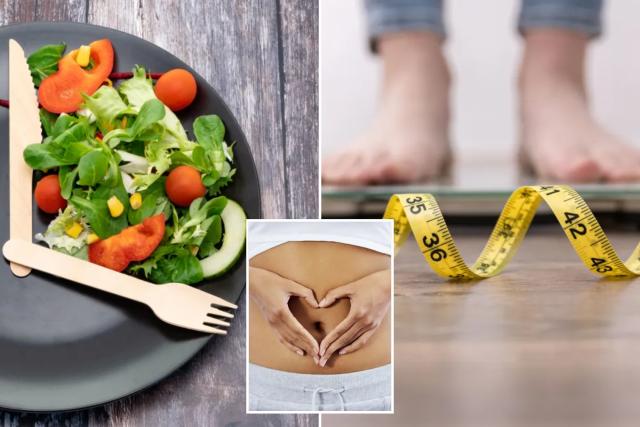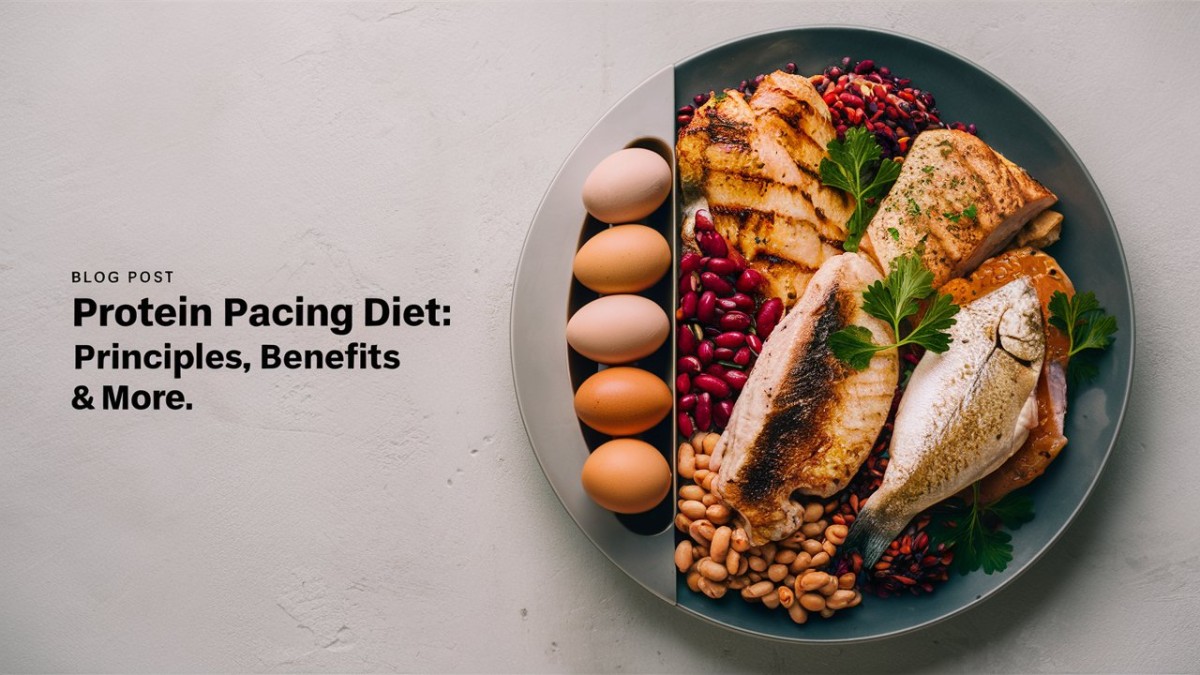There are many diet plans for weight loss across the world!
But what is this protein-pacing diet?
I’ve never heard about that!
Can it help with my weight loss goal?
Yes, a protein-pacing diet can best help you lose weight. You might be thinking how it will help you lose weight, no worries first let’s understand...
What is a protein-pacing diet?
Whenever you follow a diet plan what you do is, take all the proteins in one or two meals of your eating routine. In the case of a protein-pacing diet, you need to include protein in all of your meals and snacks i.e., you have to spread the protein intake evenly throughout the day in every meal you take. How would it help me if I included protein in all of my meals, it will best help your body to repair and build muscle, keep your metabolism active and it will make you feel full without having the problem of overeating.
Now that we've understood what a protein-paced diet is now let's delve into the principles of protein a diet:
Principles of a protein-paced diet:
|
Regular Protein Intake |
You need to regularly intake proteins every 3-4 hours in all of your meals and even snacks. |
|
Adequate Amounts Of Protein |
Each serving of meal should contain 20-40 grams of protein and that should be based on your body weight i.e., 1.2-2.2 grams of protein per kilogram of body weight. |
|
High-Quality Protein Sources |
Include high-quality protein sources into your diet such as lean meats, fish, dairy products, eggs, legumes, nuts, and plant-based proteins. |
|
Balanced Meals |
Include all the food sources such as carbohydrates, fats, fiber, fruits, vegetables, whole grains, and healthy fats for a balanced meal. |
What are the benefits of a Protein-pacing diet?
Muscle maintenance:
As we all know proteins are highly essential for repairing and building muscles, so you need to make sure that you regularly consume proteins so that your muscles get the required amounts of amino acids to grow and stay strong, especially after exercising.
Metabolism:
Yes, the protein-pacing diet can best help you enhance your metabolism because as compared to fats and carbohydrates protein requires more energy to digest which also boosts your metabolism. And in a protein-pacing diet as you intake proteins in all of your meals your metabolism gets boosted throughout the day.
Weight management:
 The crucial thing while you follow a protein-paced diet is that will help you to feel full for a long period and that will prevent you from overeating thereby giving you a healthy weight. Also, regular intake of proteins is known to reduce cravings and stick to a healthy diet.
The crucial thing while you follow a protein-paced diet is that will help you to feel full for a long period and that will prevent you from overeating thereby giving you a healthy weight. Also, regular intake of proteins is known to reduce cravings and stick to a healthy diet.
Blood sugar control:
You might be thinking every diet is labeled as that can control blood sugar levels, what's so special about this, is that in all other diet plans, you will include protein in only one or two meals which may lead to unwanted snacking in the middle but protein-pacing diet will give you a filled appetite thereby reducing the absorption of carbohydrates, preventing rapid spikes and crashes in blood sugar. This helps maintain steady energy levels throughout the day.
Sample foods for a protein-pacing diet:
Food Category |
Foods to Include |
Protein Content |
Foods to Avoid |
| Dairy | Paneer (Cottage Cheese) | 18g per 100g | Full-fat flavored yogurts |
| Greek Yogurt | 10g per 100g | Sweetened condensed milk | |
| Milk (Low-fat or Skim) | 3.4g per 100ml | Full-fat cream | |
| Curd/Yogurt (Low-fat) | 4g per 100g | Ice cream | |
| Legumes and Pulses | Lentils (Dal) | 9g per 100g (cooked) | Canned beans with added salt/sugar |
| Chickpeas | 19g per 100g (dry) | Refried beans | |
| Black Beans | 21g per 100g (dry) | ||
| Green Gram (Moong) | 24g per 100g (dry) | ||
| Nuts and Seeds | Almonds | 21g per 100g | Salted or sugary coated nuts |
| Peanuts | 26g per 100g | Peanut butter with added sugars | |
| Chia Seeds | 17g per 100g | ||
| Flaxseeds | 18g per 100g | ||
| Meat and Fish | Chicken Breast (Skinless) | 31g per 100g | Fried chicken |
| Fish (Salmon, Rohu, Hilsa) | 20-25g per 100g | Fried fish | |
| Eggs | 13g per 100g (1 large egg ~6g) | Egg preparations with excessive oil | |
| Vegetables | Green Peas | 5g per 100g | Vegetables cooked in heavy creams |
| Spinach | 2.9g per 100g | ||
| Broccoli | 2.8g per 100g | ||
| Kale | 4.3g per 100g | ||
| Grains | Quinoa | 14g per 100g (cooked) | White rice |
| Brown Rice | 2.6g per 100g (cooked) | Parboiled rice | |
| Oats | 2.4g per 100g (cooked) | Sugary cereals | |
| Amaranth | 9.3g per 100g (cooked) | ||
| Plant-Based Proteins | Tofu | 8g per 100g | Processed tofu products with added salt |
| Tempeh | 19g per 100g | ||
| Soy Milk | 3.3g per 100ml | Soy milk with added sugars |
Read more on diet
End note:
So, if you are someone who wants to build muscles and follow a healthy diet to reduce the risk of most chronic diseases, you need to follow the protein-pacing diet that too after consulting with your doctor to ensure whether it's suitable for your medical condition or not.
